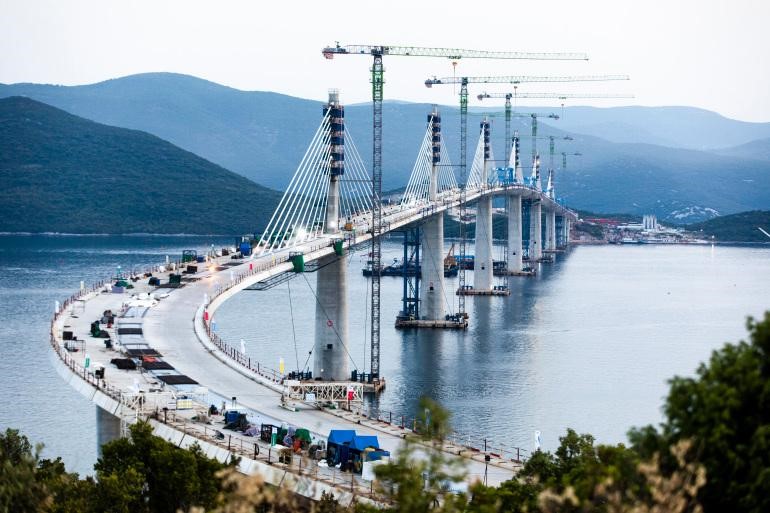
Leonardo Dinic, Advisor to the CroAsia Institute
Aug 18, 2021
The historic completion of the Pelješac bridge in Croatia marks the first time a Chinese firm and the EU have completed a project together, setting the stage for the BRI’s implementation in Eastern Europe.
Wu Zhenglong, Senior Research Fellow, China Foundation for International Studies
Jul 13, 2021
Europe is not interested in confronting China. While the European Union and United States agree on the strategic challenge presented by China’s growing assertiveness, they do not always agree on the best way to address it.
Leonardo Dinic, Advisor to the CroAsia Institute
Jun 26, 2021
EU member nations have become increasingly aware of Chinese influence in the Eastern European region, which calls for a reorienting of their strategy in the Balkans.
Sun Chenghao, Fellow, Center for International Security and Strategy of Tsinghua University; Munich Young Leader 2025
Dong Yifan, Assistant Research Fellow, China Institutes of Contemporary International Relations
Jun 25, 2021
U.S. President Joe Biden’s general narrative of “democracy against autocracy” will not be accepted wholesale. Europe wants to avoid being dragged by the United States into a costly new cold war that’s driven by strategic autonomy.
Leonardo Dinic, Advisor to the CroAsia Institute
Jun 10, 2021
Europe recently failed to ratify the Comprehensive Agreement on Investment (CAI), signaling hesitations in its trade relationship with Beijing. Instead Europe aligned itself with Washington’s efforts to counter China’s global influence.
Brian Wong, Assistant Professor in Philosophy and Fellow at Centre on Contemporary China and the World, HKU and Rhodes Scholar
May 28, 2021
A recent trade deal between the EU and China has stalled in Europe’s governing body, a possible result of China’s soft power shortcomings that affect its public perception outside of the Pacific region.
Giulio Pugliese, King’s College London, War Studies
May 08, 2021
The EU’s Strategy for Cooperation in the Indo-Pacific calls for a “meaningful European naval presence in the region.” What does it mean for vested parties in the South China Sea?
Francesca Ghiretti, Leverhulme Doctoral Fellow, Centre for Grand Strategy, King's College London
May 04, 2021
The traditional Western world alignment between the U.S. and Europe has been strained by four years of tumultuous foreign policy. Now, the gravity of China’s rise threatens to drive a larger wedge between the two regions.
Francesca Ghiretti, Leverhulme Doctoral Fellow, Centre for Grand Strategy, King's College London
May 04, 2021
The traditional Western world alignment between the U.S. and Europe has been strained by four years of tumultuous foreign policy. Now, the gravity of China’s rise threatens to drive a larger wedge between the two regions.
Feng Zhongping, Director, Institute of European Studies, Chinese Academy of Social Sciences (CASS)
Apr 29, 2021
It’s a critical time for global order China and Europe must manage and adapt to increasing competitiveness in their relationship and find a pragmatic, rational and balanced approach to their relations. But they must also increase communication and cooperation to prevent the world from renewing the pattern of major power confrontation.